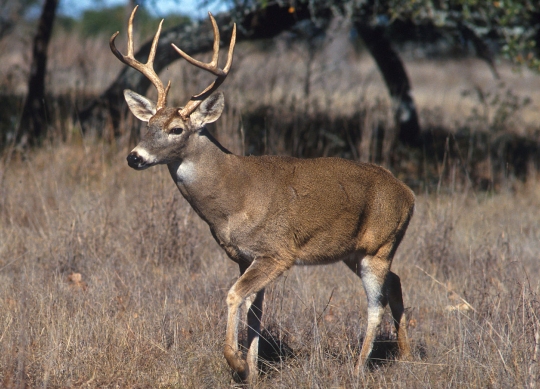
In order to make sense of the living world, biologists attempt to classify the organisms they find in creation. No classification system is perfect, of course, because creation doesn’t conform itself to the definitions that we invent. A classic example is a slime mold, which I have discussed before (see here, here, and here). These interesting organisms resemble fungi during part of their lifecyle, but they resemble colonies of single-celled organisms (called protists) during other parts of their lifecycle. So, are they fungi, or are they protists? Well, they used to be classified as fungi, but later on, biologists began classifying them with the protists. Either way, however, there are problems, because slime molds simply don’t fit well into either category.
Such problems are to be expected when you are trying to make sense of the incredibly diverse creation that God designed. However, there are some classification schemes you would think should be fairly reliable. For example, animals are generally classified into one of three groups: herbivores, carnivores, and omnivores. What is an herbivore? Here’s how an article from Northwestern University defines it:
A herbivore is an animal that gets its energy from eating plants, and only plants.
The website lists several examples of herbivores, one of which is a white-tailed deer. Montclair State University has a “Whitetail Deer Fact Sheet” that says:
Whitetails, like all ungulates, are strictly herbivores and have teeth that are adapted for chewing.
This, of course, makes perfect sense. After all, the ungulates (a group of animals that includes horses, cattle, sheep, giraffes, camels, deer, and hippopotamuses) have a digestive system that seems optimized for plant matter. No matter how obvious this classification seems, however, it turns out that it’s at least a bit wrong!
Pam Pietz, a wildlife biologist at the USGS Northern Prairie Wildlife Research Center used miniature video cameras to carefully observe grassland songbird nests. In a three-year study, she captured several animals eating nestlings right out of those nests. Most of the culprits were what you would expect: ground squirrels, badgers, weasels, etc. Surprisingly, however, nestlings in four nests were eaten by white-tailed deer! In their scientific paper, she and her colleague wrote:1
Although probably opportunistic, deer predations clearly were deliberate and likely are more common than generally believed.
So these examples of white-tailed deer eating other animals weren’t the result of the deer grazing on plants and accidentally biting into the nestlings. The deer ate the nestlings deliberately.
Also, these aren’t the only examples of deer eating other animals. National Geographic reports that red deer on the Scottish island of Rum seem to be eating the heads and legs of seabird chicks in order to get calcium in their diets. Surprisingly, the same researcher who studied the bird-eating deer in Scotland has also documented bird-eating sheep on Foula island, which is also in Scotland. So the idea that deer and other ungulates are strict herbivores doesn’t appear to be correct, at least not in all cases.
None of this is new research. Pietz published her paper in 2000, and National Geographic reported on the Scottish sheep and deer back in 2003. However, it was news to me when I recently ran across Pietz’s article. It also made me think of the opposite – studies that showed animals which are thought to be strict carnivores regularly eating plant matter. For example, a recent article that reviews a variety of studies on crocodilians (crocodiles, alligators, and caimans) found that more than 70% of the species for which dietary information was available regularly ate fruits.2 Of course, crocodilians are thought to be strict carnivores, but thanks to this review article, we know that most of them probably aren’t.
God designed an enormous amount of flexibility into His creatures so they could adapt to the changing conditions around them. As a result, we can’t expect our human-made classification systems to work very well. The more we study His creation, the more apparent that becomes.
REFERENCES
1. Pamela J. Pietz and Diane A. Granfors, “White-tailed Deer (Odocoileus virginianus) Predation on Grassland Songbird Nestlings,” The American Midland Naturalist 144(2):419-422, 2000
Return to Text
2. S. Platt, R. M. Elsey, H. Liu, T. R. Rainwater, J. C. Nifong, A. E. Rosenblatt, M. R. Heithaus, and F. J. Mazzotti, “Frugivory and seed dispersal by crocodilians: an overlooked form of saurochory?” Journal of Zoology 291:87–99, 2013
Return to Text

If you quiz the general public they would not know these things. This kind of science is suppressed b/c it muddies the water and doesn’t help Darwinism, thanks for bringing it into the light. Isn’t that all that most creationists/ID proponents are asking for – all the facts brought into the light?
I kind of want to make a Welcome to Night Vale deer joke…
Anyway, I’m not sure where to point this out, but after your blog format changed, the page has appeared awkwardly on my iPad: All the right matter (your photo, categories, links, and such) appears linearly below all the blog posts and comments, instead of to the right (as I see on my laptop). Perhaps this is a problem with the way my iPad browser (Safari) tries to interpret the new format; previously it displayed everything correctly. I do think the updated format looks good, though.
That’s funny, Jake. Thanks for letting me know about the format issue. I will have my IT guy look into it.
On the other hand, there have been documented cases of cats (which are obligate carnivores) who refuse to eat meat and only eat vegetables. For instance Little Tyke – the Lioness – famously ate only grain and vegetables.
In other news, JLWile, would you kindly give me a way to get ahold of Hugh Miller for a copy of that C14 report from Cherkinsky? Thanks.
Good point about Little Tyke, Brantozeke! I actually have the C-14 report, so I can send it to you myself.